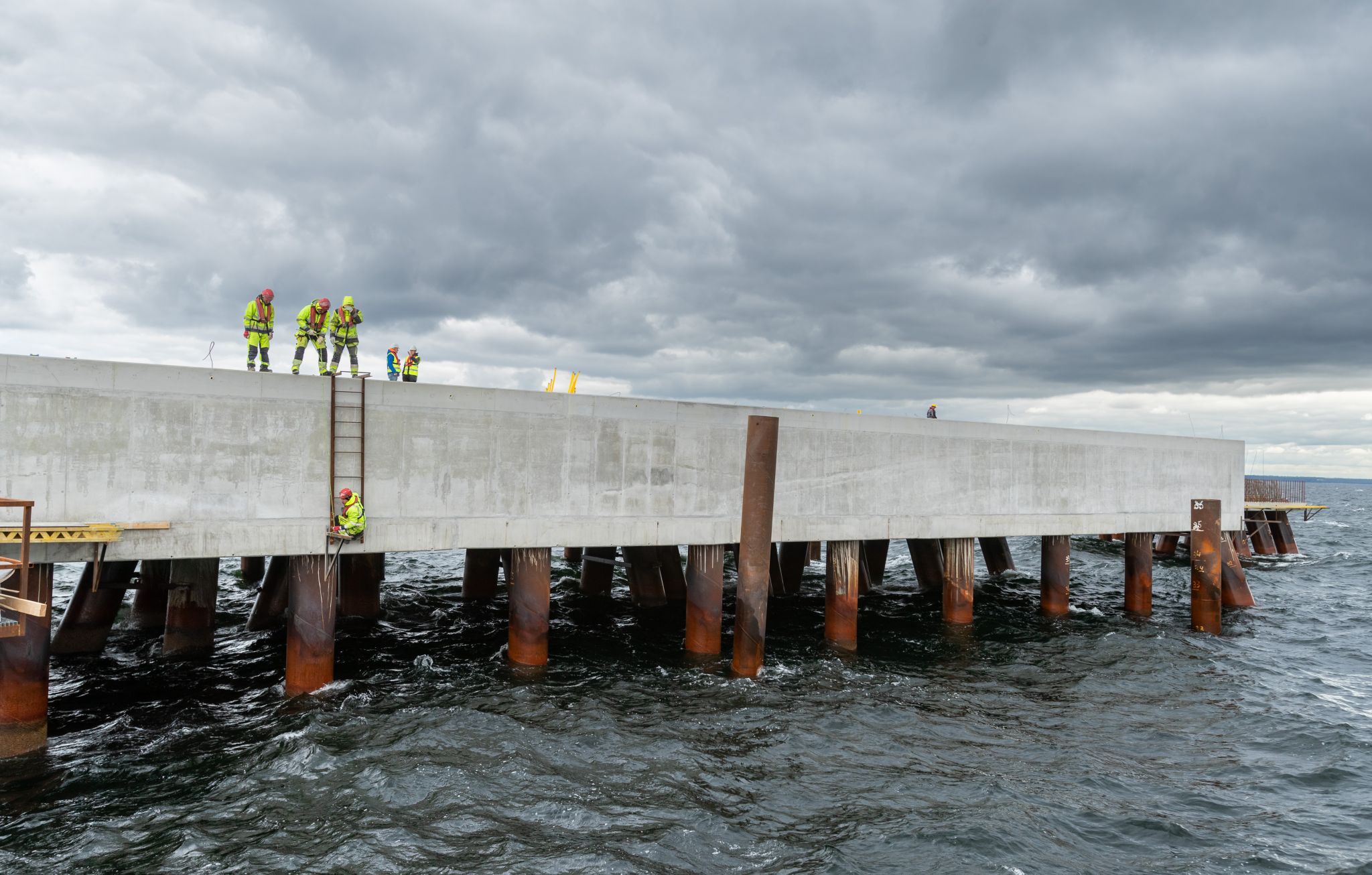Estonian energy company Alexela and compatriot investment firm Infortar have completed works on the main platform for the FSRU-based Paldiski LNG import facility.
The two firms joined forces in April this year on the development which consists of a chartered FSRU, a jetty, and a connection with the Balticconnector pipeline. They plan a second phase as well to build a permanent solution for the terminal.
Alexela said in a social media post that the two firms completed the platform last week.
“On August 31, a day earlier than promised, Alexela and Infortar, who are responsible for the construction of the mooring point at the Paldiski LNG terminal, handed over the first stage of the main platform to Elering, Estonia’s gas system operator, for the pipeline works,” the firm said.
Elering said in June that construction work had started on the pipeline that will connect the planned FSRU-based LNG import terminal in Paldiski to the grid.
The pipeline will be long about 1.2 kilometers, linking the LNG terminal’s jetty to Elering’s onshore compressor station.
As per the FSRU, Estonia and Finland agreed to jointly charter an FSRU to import LNG, as part of plans to reduce reliance on Russian pipeline gas and boost energy security.
Gasgrid Finland and Elering signed a cooperation deal on May 4 to set out the terms for the joint charter of the unit which will serve both countries.
After that, Gasgrid signed a 10-year deal to charter one FSRU from US LNG player Excelerate.
Under the charter deal, Excelerate will provide its 150,900-cbm Exemplar which can supply more than 5 billion cubic meters per year of regasification capacity.
The FSRU is already heading towards Europe after the 2010-built LNG vessel completed its winter supply contract in Argentina.
In August, Gasgrid and Fortum finalized the previously announced deal to place the country’s first FSRU in the port of Inkoo.
This unit would dock either in Inkoo or Paldiski, depending on where work is completed first, the partners previously said.
It will probably spend most of its time in Inkoo due to higher gas demand in Finland.

